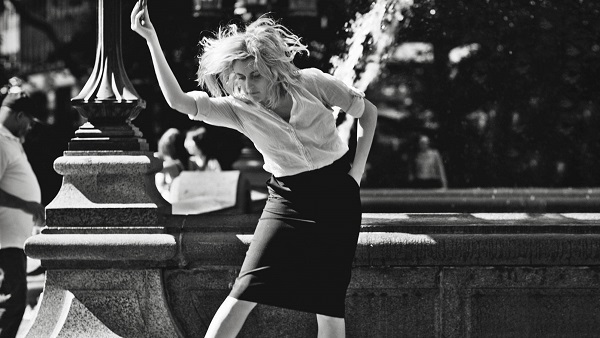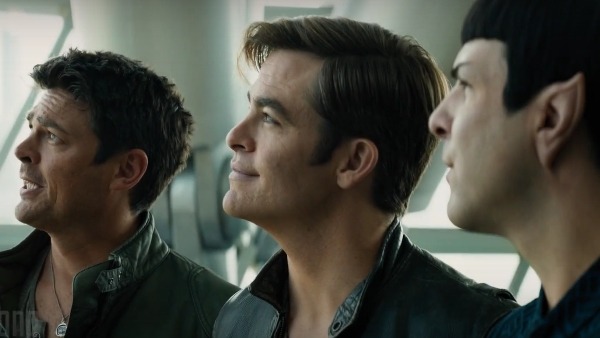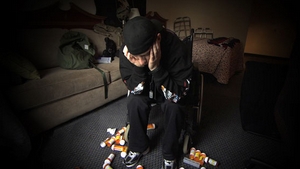
Culturally, Frances Ha almost feels like Noah Baumbach issuing a challenge to all listless twenty-somethings stubbornly fixated on spending their time finding themselves: get found already, dammit. Throughout his career, Baumbach has showcased a knack for capturing the unbearable sensation of being emotionally unmoored, and across his entire filmography, Frances Ha – lyrical, succinct, rapturously authentic – may display that talent better than the rest. Think of it as a quartet of Girls episodes mashed together into an eighty minute bonanza of comic incident, if you must; the film is set in New York, and focuses on the travails of a young, white, up and coming female struggling to make her dreams come true in the big city.
For a tragically prevalent percentage of the online cineaste community, that irrefutable family resemblance provides all the reason necessary to write off Frances Ha sight unseen. Truthfully, it’s difficult to imagine detractors of Lena Dunham’s work enjoying Baumbach’s latest feature (assuming they’re being honest, mind), and vice versa; Girls‘ fans should gravitate toward Frances Ha without needing to be prodded. But homogenization can be a danger for artistry, and in reality the two things play very differently from one another. Perhaps the biggest difference outside of Baumbach’s aesthetic touches is the absence of ensemble – with only a handful of supporting characters to reign in (among them Girls‘ suddenly ubiquitous Adam Driver), he’s free to put the bulk of his narrative focus on his luminous, bubbly, ineffable star, Greta Gerwig.
Gerwig’s a fixture in the love-it-or-hate-it mumblecore movement, and she’s one of the few faces in that crowd to edge her way into the mainstream. (Not that efforts like Arthur set the world on fire, but I digress.) Here, she lives in just about every single one of the shots Baumbach captures; he doesn’t take his eyes off of her if he can help it. It’s a visual infatuation that extended into off-set romance – Gerwig and Baumbach are an item, and apparently fell for each other while shooting this film – but it’s also a narrative tool that infuses France’s story with added, necessary depth. Baumbach’s affections for his leading lady practically emanate from behind the lens; his giddy sentiments are totally infectious. We’re practically smitten by her from the moment we meet her.
That’s a clever way of dodging around how little introduction she actually gets; Baumbach practically throws us into her world from the first scene onward, and together, he and Gerwig reveal her quality to us without adding an ounce of fat to the pot. Paced briskly between each significant moment of the life we see unfolding on screen – Frances exists in a constant state of flux, drifting from the apartment she shares with her best friend, to a flat rented by two hipster boys, and eventually to a shockingly unremarkable excursion to Paris – the film makes the best possible use of its brief, precise running time; we know Frances, partly because Baumbach builds character through action, and partly because Baumbach is so damn taken by her. We can’t help but echo the feeling.
Frances Ha captures all of this through a thickly-pressed layer of nostalgia. It’s no mistake that Baumbach eventually jets Frances all the way over to Europe; he’s nearly as obsessed with the movies of La Nouvelle Vague (most of all Truffaut and Godard) as he is with Gerwig.The film borrows musical queues from Such a Gorgeous Kid Like Me and Small Change, for Pete’s sake; it cloaks the design elements of its Stateside locations with Parisian attitude and style. Maybe Baumbach just really likes New Wave cinema, but he’s really using homage as a means of establishing and shattering fantasy by articulating just what happens when reality derails the glamorous vision you have for your adulthood.
Frances’ aspirations, and those expressed by every other character in her age bracket, run into a brick wall: being a struggling artist is hard. Being broke in New York is hard. Trying your heart out (or not, as the case may be) and meeting rejection is hard. The most dedicated counter-cultural hipsters in the audience may consider Frances a sell-out by the end of her story – she gives up her hopes and winds up sitting behind the dreaded office desk, a symbol of failure to a generation bred to believe that everybody is a star. But she doesn’t do that; she just finds a way to fuse her passion with practicality, and in the process she wins some self-respect and much-needed agency.
So Frances Ha is really all about growing up, but in such a specific and pragmatic way as to avoid falling in line with its contemporaries. Baumbach synthesizes referentialism and comes up with a film that wears its influences on its sleeve, but the driving force behind Frances Ha is honest; this is a picture about romance, both that which he feels for Gerwig, and that which the titular character discovers for herself.




